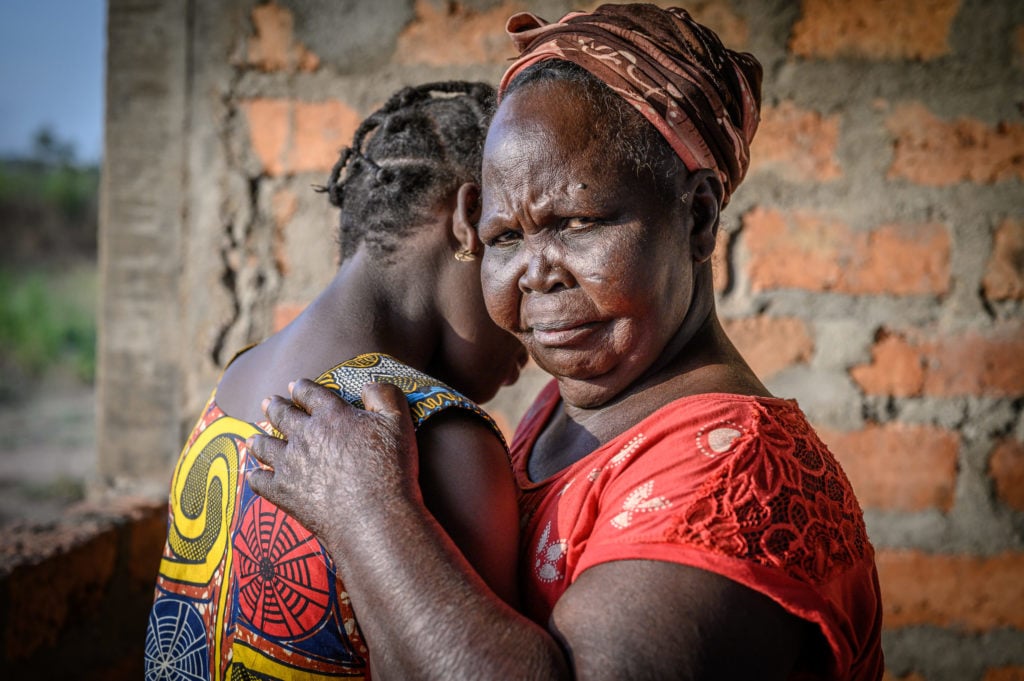In the wake of violent conflict and mass human rights abuses, the most fragile states struggle to address injustices experienced by victims. In such contexts, how can victims still obtain meaningful justice? A new report by Cordaid and the International Center for Transitional Justice (ICTJ) provides important insights.

The Central African Republic (CAR) has experienced decades of civil war and violence against civilians. In late-2020, a fresh outbreak of fighting aggravated the existing humanitarian crisis. Every day, new victims of conflict join the ranks of those still seeking justice for past crimes.
Like other fragile states, the CAR’s institutional capacity is limited, insecurity is pervasive, communities are divided, and justice mechanisms can jeopardize progress toward stability.
As a result, victims are seldom able to access justice through formal means, or even through the political and social mechanisms known collectively as post-conflict ‘transitional justice’.
Data collected in 2017 by Cordaid partners identified 2740 victims in six towns, 70% of whom had lost their livelihoods due to the crisis.
Justice in the shadow of fragility
In 2020, Cordaid and the ICTJ joined forces to explore forms of justice for victims that are possible in contexts of fragility, and what kinds of interventions by the international community can support them.
That research is captured in a new report published this week. The report ‘A Drop of Water on a Hot Stone’ underscores the importance of planning and designing justice processes around the needs of victims.
“In the CAR, national justice processes are only accessible to people in the capital,” says Flora Kwizera, Cordaid Programme Manager. “Victims in rural areas cannot meaningfully participate.”
Criminal accountability is a primary concern for victims in Bangui, but reparations are especially important for those outside of the capital. For many victims, justice claims tend to be about social justice and equality.
“In the CAR, national justice processes are only accessible to people in the capital. Victims in rural areas cannot meaningfully participate.”
Women face restrictive social norms, inadequate legal protections, and acute physical insecurity; the huge number of unaddressed sexual and gender-based violations during the conflict have contributed to a broad climate of impunity.
ICTJ’s Rim El Gantri, who led the study, adds: “Young people have been harmed by displacement, recruitment by armed groups, and the disappearance of family members. But public institutions exclude them from discussions on access to justice.”
Measures that matter
Even in a highly fragile context like the CAR, opportunities exist to provide meaningful justice to victims. The report proposes practical measures, such as reduced legal fees for conflict victims and recognition of former child soldiers as victims (rather than perpetrators), that can be adopted by the CAR’s government.
“It proposes a reparations programme based on the findings of wide consultations with victims and their associations,” says Flora. “Rather than on prosecutions and court decisions.”
The report recommends a victim-oriented outreach strategy for all justice initiatives, with victims’ groups actively participating, to manage public expectations from the start.
It also calls upon international stakeholders to emphasize the importance of providing justice to victims of human rights violations as a means of achieving Sustainable Development Goal 16 on peace, justice, and inclusive societies.
A more just future, with victims in the lead
The agency and dignity of victims of mass violence and human rights abuses must be at the very heart of transitional justice. Victims in the CAR and elsewhere should not only benefit from transitional justice processes but have the space and support to shape them.
“The report maps out practical pathways for victim-centred justice in the most fragile contexts. Victims’ voices always matter.”
In December, Cordaid and ICTJ co-hosted a global virtual dialogue that used the research in the CAR to engage over 70 policymakers and practitioners around how to support transitional justice in very fragile contexts. Both organizations will seek to share the report’s recommendations widely in the CAR.
‘A Drop of Water on a Hot Stone’ will also inform about the work of Cordaid and its partners in the 5-year, Dutch-funded Just Future programme. Operating in a half-dozen fragile contexts, Just Future will invest in research and advocacy around support to victims’ associations and the place of transitional justice in peace processes, among other related themes.
“Our research with Cordaid is relevant far beyond the CAR,” says Rim. “The report maps out practical pathways for victim-centred justice in the most fragile contexts. Victims’ voices always matter.”
For more information, please contact:
Flora Kwizera, Programme Manager, Cordaid – [email protected]
Rim El Gantri, Senior Expert and Head of Libya Programme, ICTJ – [email protected]